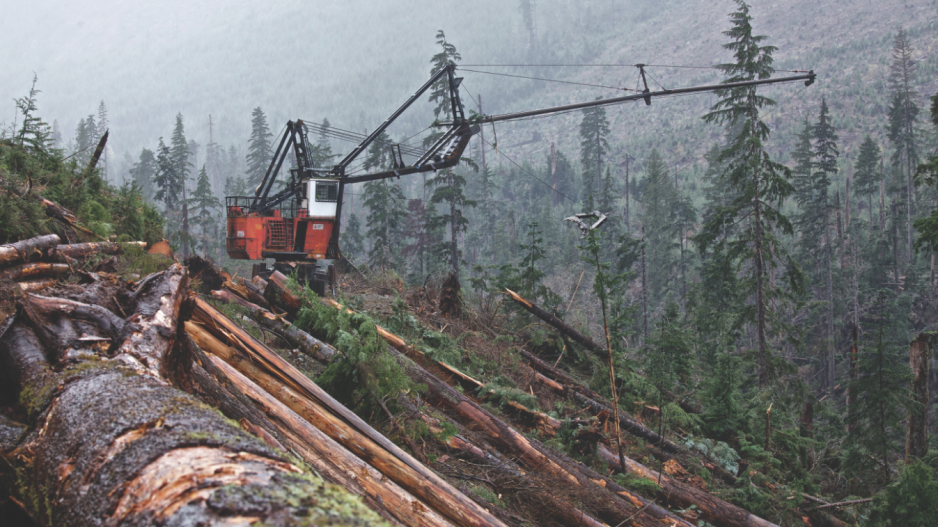In B.C., you would be hard-pressed to find a single piece of legislation that was more reviled by the B.C. business community – or more costly – than the B.C. Forest Practices Code.
That legislation was estimated to have cost B.C. forestry companies $1 billion in additional red tape between 1992 and 1995, according to one Price WaterHouse (now PricewaterhouseCoopers) analysis.
So when Council of Forest Industries (COFI) president Susan Yurkovich recently invoked the Forest Practices Code as an example of what might return to B.C. if recommendations for overhauling B.C.’s professional reliance model are adopted, it may have sent a chill up the collective spine of all resource industries in B.C., especially forestry.
Like forestry, the exploration and mining sector could also find itself mired in new layers of red tape should the provincial government accept the central recommendation of Mark Haddock.
A major concern for resource industries is that Canada is already suffering from declining investor confidence, so any new layers of red tape could make B.C. that much less attractive a place to do business.
Haddock, a former University of Victoria environmental law professor now working for the Forest Practices Board, was asked by the BC NDP government to review B.C.’s professional reliance model, in response to concerns of eroding public confidence.
Professional reliance delegates responsibility to the private sector for meeting government regulations for everything from tailings ponds to forestry plans, using professional consultants. Professional associations set standards and ethical codes of conduct for their members, and can discipline members for failing to follow standards.
In his report, Haddock points to the Mount Polley tailings pond collapse in 2014 and the contamination of the Hullcar Aquifer in the Okanagan from agriculture as examples of “decreased public confidence” in the professional reliance model.
Among his 121 recommendations is one that calls for new legislation and a new body to oversee the professional associations that certify and regulate their own members.
The Business Council of British Columbia, the Mining Association of BC (MABC), COFI and a number of other professional associations have no problem with some of Haddock’s recommendations for improving oversight.
But they are unanimously and vociferously opposed to Haddock’s recommendation for a new government bureaucracy – the proposed Office of Professional Regulation and Oversight – that would regulate professional associations.
“This report makes recommendations that would take us back… to the Forest Practices Code,” Yurkovich said. “That’s exactly why the last system was ultimately rejected. Basically it gridlocked the regulatory scheme.”
But the BC Ombudsman is applauding Haddock’s work, saying it echoes many of the same recommendations the office has made for improving the professional reliance model.
In a 2014 report, the Ombudsman’s office highlighted what it called “significant gaps” in government oversight when it came to regulations for protecting riparian areas. Haddock’s report also singles out the current Forest and Range Practices Act and Riparian Areas Protection Act as being “most problematic.”
MABC is just as concerned as COFI when it comes to the recommendation for a new government oversight body.
MABC CEO Bryan Cox said there is a need for more qualified professionals in government to provide oversight within specific ministries, but he questions the need for a new oversight body.
“Extra government bureaucracy is not the cure-all for better outcomes,” he said. “Would a bigger oversight unit improve the outcomes in our sector? I would contend not. I would contend that we have an excellent regulatory system in this province and we have excellent qualified professionals.”
Under the current regime, the government sets the rules and objectives; professionals use their expertise to meet those objectives when drawing up plans for road and bridge building, harvesting, etc.; and then the government comes in at the end to certify that it meets all government requirements.
Professional associations fear a return to a more prescriptive regime in which government bureaucrats dictate each decision, every step of the way.
In some cases, government professionals may not be as experienced or knowledgeable as the professionals employed by industry. That was the case when the Forest Practices Code was in effect, said Stirling Angus, a professional forestry consultant who worked under the code in the 1990s.
“It created an unwieldly system for approval,” he said. “The standards haven’t really changed. The standards of what we’re doing on the ground now are much the same standards. It’s just the method of who’s responsible for achieving those standards [that’s different].”




